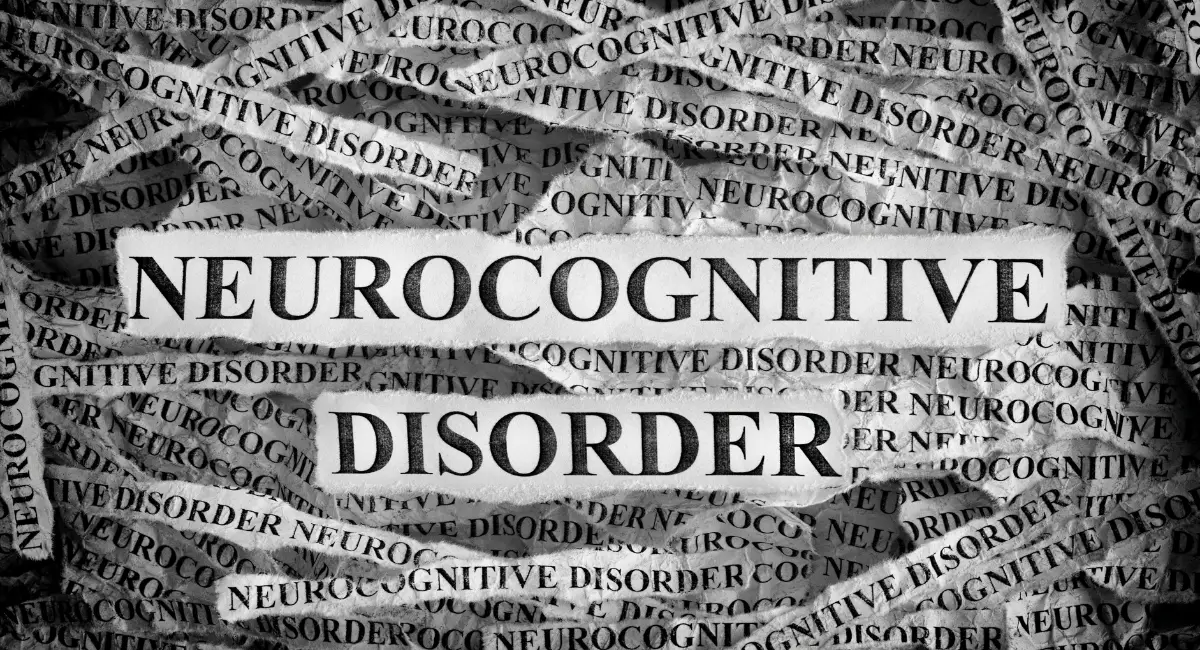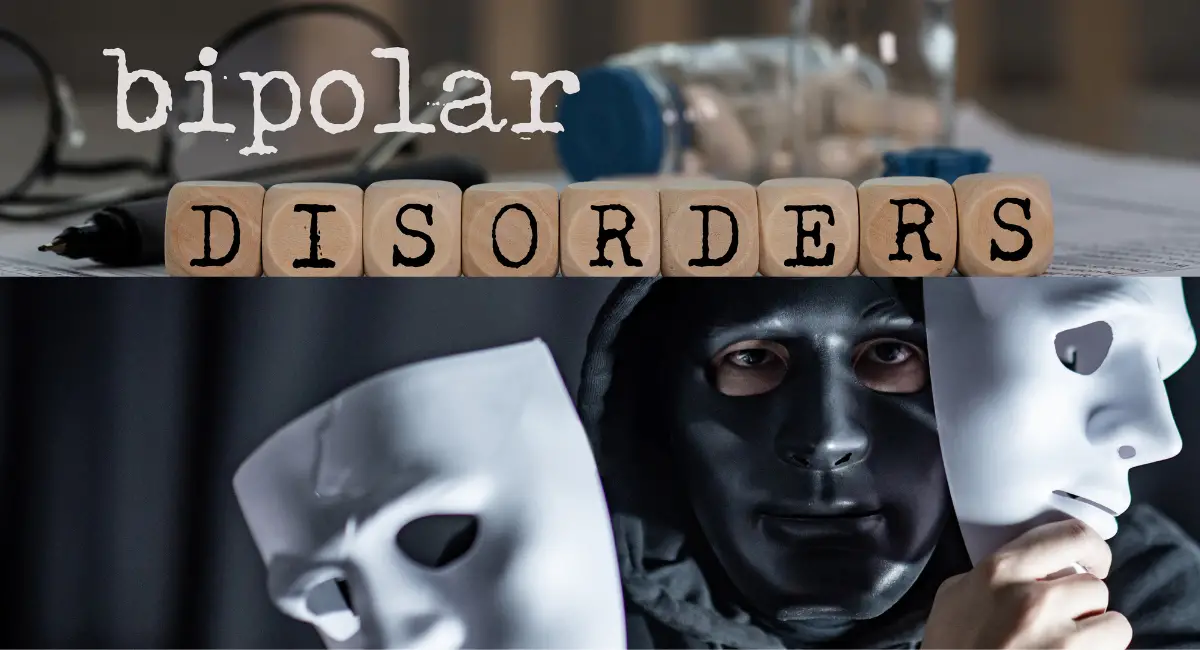
Major Neurocognitive Disorder: Symptoms, Causes, and Therapy Options
Contents
Introduction
Major Neurocognitive Disorder (NCD), previously referred to as dementia, is a condition characterized by a significant decline in cognitive functioning, including memory, language, problem-solving, and other mental abilities. This decline interferes with daily life and affects an individual’s ability to perform tasks independently. The disorder encompasses a variety of causes, including degenerative brain diseases, traumatic injuries, and infections. It often affects older adults but can also result from conditions that impact younger populations.
The Diagnostic and Statistical Manual of Mental Disorders, Fifth Edition (DSM-5) classifies Major NCD based on the underlying cause. This article will cover several types of Major Neurocognitive Disorder, including those due to Alzheimer’s Disease, Frontotemporal Lobar Degeneration, Lewy Bodies, Vascular Issues, and more. The article will also explore the Symptoms, Causes, and Therapy Options for this disorder.
Symptoms of Major Neurocognitive Disorder
The symptoms of Major Neurocognitive Disorder vary depending on the cause but generally involve progressive cognitive decline. Below is a table outlining the common symptoms and examples of how they manifest:
| Symptom | Description/Example |
|---|---|
| Memory Loss | Difficulty remembering recent events or information, such as forgetting names or appointments. For example, someone may frequently misplace items. |
| Impaired Judgment and Decision-Making | Trouble making decisions, problem-solving, or understanding consequences. For example, someone may make poor financial choices. |
| Difficulty with Language | Struggles with speaking, finding words, or understanding conversations. An individual might pause frequently during conversations or use incorrect words. |
| Disorientation | Confusion about time, place, or personal identity. For instance, someone may forget where they are or how they got there. |
| Personality and Mood Changes | Sudden mood swings, irritability, depression, or withdrawal from social activities. Someone might become uncharacteristically aggressive or anxious. |
| Loss of Ability to Perform Daily Tasks | Inability to manage basic tasks such as cooking, dressing, or managing finances, even though they could do these tasks previously. |
Types of Major Neurocognitive Disorder
Several underlying causes contribute to Major Neurocognitive Disorder, each with unique characteristics and progression patterns. Below are key types of Major NCD and their specific features.
1. Due to Alzheimer’s Disease
Alzheimer’s Disease is the most common cause of Major NCD, accounting for 60-80% of all dementia cases. It is characterized by progressive memory loss and cognitive decline, often beginning with difficulty recalling recent events and gradually worsening over time.
- Alzheimer’s Disease is linked to the buildup of amyloid plaques and tau tangles in the brain, which interfere with neural communication and cause brain cells to die.
- The disease progresses through different stages, from mild cognitive impairment to severe dementia, where individuals lose the ability to communicate or care for themselves.
Mary, an 82-year-old diagnosed with Alzheimer’s Disease, initially showed signs of forgetfulness, such as misplacing items and repeating questions. As the disease progressed, she became unable to recognize family members and required full-time care.
2. Due to Frontotemporal Lobar Degeneration
Frontotemporal Lobar Degeneration (FTLD) is a form of Major NCD that primarily affects the frontal and temporal lobes of the brain, leading to changes in personality, behavior, and language. It often affects individuals younger than those with Alzheimer’s Disease.
- FTLD results from the degeneration of neurons in the brain’s frontal and temporal lobes, which are responsible for personality, behavior, and language. This leads to significant changes in behavior, such as apathy or inappropriate social conduct, as well as language difficulties.
- Subtypes include behavioral variant FTLD and primary progressive aphasia, with some cases linked to genetic mutations, particularly in the C9orf72 gene.
John, a 58-year-old man diagnosed with Frontotemporal Lobar Degeneration, began exhibiting uncharacteristic apathy, withdrawing from social interactions, and displaying erratic behavior. Over time, his language skills also deteriorated.
3. With Lewy Bodies
Lewy Body Dementia (LBD) is a type of Major NCD caused by abnormal protein deposits called Lewy bodies that develop in brain cells, disrupting cognitive and motor functions. It is closely associated with Parkinson’s Disease Dementia.
- Lewy bodies are abnormal clumps of protein that accumulate in the brain, leading to a range of symptoms, including cognitive decline, hallucinations, and motor impairments. Individuals with Lewy Body Dementia may also experience fluctuations in alertness and attention.
- Symptoms of LBD often overlap with Parkinson’s Disease, including movement issues such as tremors and stiffness.
Sarah, a 70-year-old diagnosed with Lewy Body Dementia, experienced vivid visual hallucinations, seeing people who were not there. She also had difficulty with balance and suffered from tremors, similar to symptoms seen in Parkinson’s Disease.
4. Vascular Neurocognitive Disorder
Vascular NCD occurs when blood flow to the brain is impaired, often due to strokes or chronic conditions like hypertension. Cognitive decline is typically linked to the area of the brain affected by the vascular event, and symptoms can vary accordingly.
- Vascular NCD is caused by reduced or blocked blood flow to the brain, leading to tissue damage. This damage can occur suddenly, following a stroke, or gradually, due to chronic conditions such as high blood pressure or diabetes.
- Symptoms often include impaired judgment, slowed thinking, and problems with decision-making rather than memory loss, though memory may also be affected in some cases.
Tom, a 72-year-old man who had suffered multiple strokes, developed Vascular Neurocognitive Disorder. While his memory remained intact, he struggled with problem-solving and making decisions.
5. Due to Traumatic Brain Injury (TBI)
Traumatic Brain Injury (TBI) can lead to Major NCD when the brain is damaged by external trauma, such as a blow to the head. Cognitive decline can result immediately after the injury or develop years later, depending on the severity of the trauma.
- TBI results in damage to brain tissue caused by physical trauma, such as car accidents, falls, or sports injuries. Individuals may experience memory loss, confusion, mood changes, and difficulty concentrating.
- Chronic traumatic encephalopathy (CTE), often seen in athletes with repeated head trauma, is a degenerative condition that leads to progressive cognitive decline.
James, a 35-year-old former football player, developed Major NCD Due to TBI after years of head injuries. He began experiencing memory loss, difficulty focusing, and personality changes in his 40s.
6.Medication-Induced Neurocognitive Disorder
Medication-Induced NCD occurs when prolonged use or withdrawal from drugs, alcohol, or certain medications damages the brain. The cognitive effects depend on the substance and the duration of use, with symptoms similar to other forms of NCD.
- Chronic use of substances like alcohol, benzodiazepines, or illicit drugs can damage brain cells, leading to cognitive decline. The cognitive deficits associated with alcohol-related NCD, for example, often include memory loss, confusion, and impaired executive function.
- Withdrawal from substances can also lead to NCD, particularly if brain damage occurs due to prolonged substance use or overdoses.
Michael, a 50-year-old man with a history of alcohol use disorder, developed Substance-Induced NCD after years of heavy drinking. His symptoms included memory loss and difficulty managing daily tasks.
7. Due to HIV Infection
HIV-Associated Neurocognitive Disorder (HAND) occurs when the HIV virus directly damages the brain. Individuals with advanced HIV may experience cognitive decline as the virus affects brain cells, leading to memory problems, confusion, and behavioral changes.
- HIV can cross the blood-brain barrier, leading to inflammation and damage to brain cells. The cognitive decline seen in HAND is progressive and often affects memory, attention, and motor skills.
- Antiretroviral therapy (ART) has reduced the prevalence of severe HAND, but mild cognitive impairment remains common in individuals with long-term HIV infection.
John, living with HIV for many years, began to notice cognitive changes, such as memory loss and difficulty concentrating. He was diagnosed with HIV-Associated Neurocognitive Disorder and began receiving treatment to manage his symptoms.
8. Due to Prion Disease
Prion diseases are rare, rapidly progressing neurodegenerative disorders caused by abnormal proteins called prions. These proteins damage brain tissue, leading to severe cognitive and motor impairments. Creutzfeldt-Jakob Disease (CJD) is the most well-known form of prion disease.
- Prions are misfolded proteins that cause normal proteins in the brain to also misfold, leading to widespread brain damage. These diseases are rare but typically progress rapidly, resulting in profound cognitive decline, movement difficulties, and death within a short time.
- CJD often begins with subtle memory and behavior changes, but rapidly progresses to severe dementia and motor symptoms, such as jerking movements and loss of coordination.
Anna, a 60-year-old woman, was diagnosed with Creutzfeldt-Jakob Disease after she began experiencing sudden memory loss, difficulty walking, and jerking movements. Her condition worsened rapidly over several months.
9. Due to Parkinson’s Disease
Parkinson’s Disease primarily affects movement, but many individuals with the condition also develop cognitive decline, known as Parkinson’s Disease Dementia (PDD). Cognitive symptoms typically appear years after the onset of motor symptoms.
- Parkinson’s Disease involves the degeneration of dopamine-producing neurons in the brain. As the disease progresses, it affects cognitive abilities, particularly executive functions such as planning and decision-making.
- Parkinson’s Disease Dementia typically develops after several years of living with Parkinson’s and shares some similarities with Lewy Body Dementia due to the presence of Lewy bodies in the brain.
James, who had lived with Parkinson’s Disease for 10 years, began experiencing cognitive changes, including difficulty making decisions and slowed thinking. He was diagnosed with Parkinson’s Disease Dementia.
10. Due to Huntington’s Disease
Huntington’s Disease is a genetic neurodegenerative disorder that causes progressive cognitive decline, psychiatric symptoms, and movement issues. The disease is caused by a mutation in the HTT gene and typically begins in middle age.
- Huntington’s Disease is an inherited condition caused by a mutation in the HTT gene. This mutation leads to the degeneration of neurons in the brain, particularly in areas involved in movement, cognition, and emotion.
- Cognitive symptoms often include impaired judgment, memory loss, and difficulty concentrating, while psychiatric symptoms such as depression and irritability are also common.
Michael, a 40-year-old man with a family history of Huntington’s Disease, began experiencing personality changes and difficulty with daily tasks. Genetic testing confirmed he had inherited the condition, and he was diagnosed with Major NCD Due to Huntington’s Disease.
Causes and Risk Factors of Major Neurocognitive Disorder
The development of Major Neurocognitive Disorder is influenced by a combination of genetic, biological, and environmental factors.
Major causes that we will discuss, include: Genetic and Biological Factors, Psychological and Lifestyle Factors, Environmental Factors:
1. Genetic and Biological Factors
Genetic predispositions play a significant role in the development of many forms of Major NCD, particularly Alzheimer’s Disease, Parkinson’s Disease, and Huntington’s Disease.
- The APOE-e4 gene is a well-known genetic risk factor for Alzheimer’s Disease, while mutations in the HTT gene directly cause Huntington’s Disease.
- Other genetic mutations, such as those in the LRRK2 gene for Parkinson’s Disease and C9orf72 for Frontotemporal Lobar Degeneration, also contribute to the development of cognitive decline.
John’s family history of Parkinson’s Disease and his diagnosis of Parkinson’s Disease Dementia highlight the genetic link to his cognitive decline.
2. Psychological and Lifestyle Factors
Certain lifestyle factors, including physical activity, diet, and mental stimulation, play a role in reducing the risk of developing Major NCD.
- Physical activity has been shown to improve cognitive function and reduce the risk of developing NCD, while a Mediterranean diet rich in fruits, vegetables, and healthy fats is linked to better cognitive health.
- Mental stimulation, such as learning new skills or engaging in puzzles, helps delay the onset of cognitive decline by promoting neuroplasticity.
Tom’s history of a sedentary lifestyle and poor diet may have contributed to his development of Vascular Neurocognitive Disorder, as these factors increase the risk of stroke and vascular damage.
3. Environmental Factors
Environmental influences, such as exposure to toxins or head injuries, can increase the risk of Major NCD.
- Traumatic Brain Injury (TBI) is a significant risk factor for Major NCD, especially for individuals who have experienced repeated head injuries, such as athletes. Exposure to environmental toxins, such as heavy metals or pesticides, also increases the risk of cognitive decline.
James, who played professional football and suffered multiple concussions, developed Major NCD Due to TBI as a result of his brain injuries.
Therapy and Treatment Options for Major Neurocognitive Disorder
Treating Major NCD focuses on managing symptoms, slowing disease progression, and improving quality of life. Below are the key treatment and therapy options.
1. Cognitive Behavioral Therapy (CBT)
Cognitive Behavioral Therapy (CBT) is commonly used to address the emotional and psychological effects of NCD, such as anxiety, depression, and behavioral changes. It helps individuals and caregivers manage emotional challenges and develop coping strategies for cognitive decline.
- CBT helps individuals with NCD and their families adjust to the diagnosis by managing negative thoughts, improving mood, and developing coping strategies for memory loss and disorientation.
- Caregivers can also benefit from CBT to help manage the emotional strain of caring for a loved one with NCD.
Mary, diagnosed with Alzheimer’s Disease, participates in cognitive-behavioral therapy (CBT) to help manage the anxiety and emotional distress caused by her memory loss. Alzheimer’s disease, a neurodegenerative condition, leads to progressive memory impairment and cognitive decline, often causing individuals to feel anxious or fearful about their changing abilities.
2. Cognitive Rehabilitation
Cognitive Rehabilitation is a therapeutic approach aimed at improving cognitive function in individuals with NCD. This therapy involves exercises that target specific cognitive skills, such as memory, attention, and problem-solving.
- Cognitive Rehabilitation focuses on maintaining or improving cognitive abilities through memory training, problem-solving tasks, and compensatory strategies, such as using memory aids to support daily functioning.
Tom, diagnosed with Vascular Neurocognitive Disorder (NCD), participates in cognitive rehabilitation therapy to help improve his problem-solving skills and memory. Vascular NCD is a type of cognitive decline caused by reduced blood flow to the brain, often due to strokes or other vascular issues. This condition can lead to difficulties with thinking, memory, attention, and decision-making.
3. Medications
There is no cure for Major NCD, but certain medications can slow the progression of symptoms, particularly in Alzheimer’s Disease and Parkinson’s Disease.
- Cholinesterase inhibitors, such as donepezil and rivastigmine, are commonly prescribed for Alzheimer’s Disease to improve communication between nerve cells and slow memory decline.
- Memantine is used to treat moderate to severe Alzheimer’s Disease, working by regulating the activity of glutamate, a neurotransmitter involved in learning and memory.
James, diagnosed with Parkinson’s Disease Dementia (PDD), takes rivastigmine as part of his treatment plan to manage the cognitive symptoms associated with his condition. Parkinson’s Disease Dementia is a neurodegenerative disorder that affects both motor function and cognitive abilities, often causing issues with memory, attention, and executive function as the disease progresses.
Long-Term Management of Major Neurocognitive Disorder
Long-term management of Major NCD involves ongoing care, lifestyle adjustments, and support. Key strategies for long-term management include:
- Ongoing Therapy: Continued participation in CBT or Cognitive Rehabilitation helps individuals maintain their cognitive abilities.
- Medications: Regular use of prescribed medications, such as cholinesterase inhibitors, can help slow the progression of cognitive decline.
- Support Group Participation: Involvement in support groups offers ongoing emotional and social support for both individuals with NCD and their caregivers.
Conclusion
Major Neurocognitive Disorder encompasses a range of conditions that cause significant cognitive decline, including Alzheimer’s Disease, Vascular NCD, Lewy Body Dementia, and more. The causes of NCD include genetic, psychological, and environmental factors. Treatment typically involves Cognitive Behavioral Therapy (CBT), Cognitive Rehabilitation, medications, and participation in support groups. Long-term management strategies, such as continued therapy and support group involvement, are essential for improving recovery outcomes and quality of life for individuals with NCD.
References
- American Psychiatric Association. (2013). Diagnostic and statistical manual of mental disorders (5th ed.). American Psychiatric Publishing.
- Alzheimer’s Association. (2020). Alzheimer’s disease facts and figures. Alzheimer’s & Dementia, 16(3), 391-460.
- Prince, M., Wimo, A., Guerchet, M., & Prina, M. (2016). World Alzheimer report 2016: Improving healthcare for people with dementia. Alzheimer’s Disease International.
- Roman, G. C. (2003). Vascular dementia: Diagnostic criteria for research studies. Journal of Neurology, 250(2), 145-151.
- Smith, G. E., & Bondi, M. W. (2013). Mild cognitive impairment and dementia: Definitions, diagnosis, and treatment. Oxford University Press.
- Dubois, B., & Hampel, H. (2014). Advances in the diagnosis and treatment of Alzheimer’s disease: The role of biomarkers. Nature Reviews Neurology, 10(3), 152-160.
- Schneider, L. S., & Dagerman, K. S. (2011). Efficacy of atypical antipsychotics in the treatment of dementia: A systematic review and meta-analysis. Journal of Clinical Psychiatry, 72(5), 1-9.
- McKhann, G., Drachman, D., Folstein, M., Katzman, R., Price, D., & Stadlan, E. M. (1984). Clinical diagnosis of Alzheimer’s disease: Report of the NINCDS-ADRDA Work Group under the auspices of the Department of Health and Human Services Task Force on Alzheimer’s Disease. Neurology, 34(7), 939-944.
- O’Brien, J. T., & Thomas, A. (2015). Vascular dementia. Lancet, 386(10004), 1698-1706.
- Petersen, R. C., & Morris, J. C. (2005). Mild cognitive impairment as a clinical entity and treatment target. Archives of Neurology, 62(7), 1160-1163.
Explore Other Mental Health Issues








